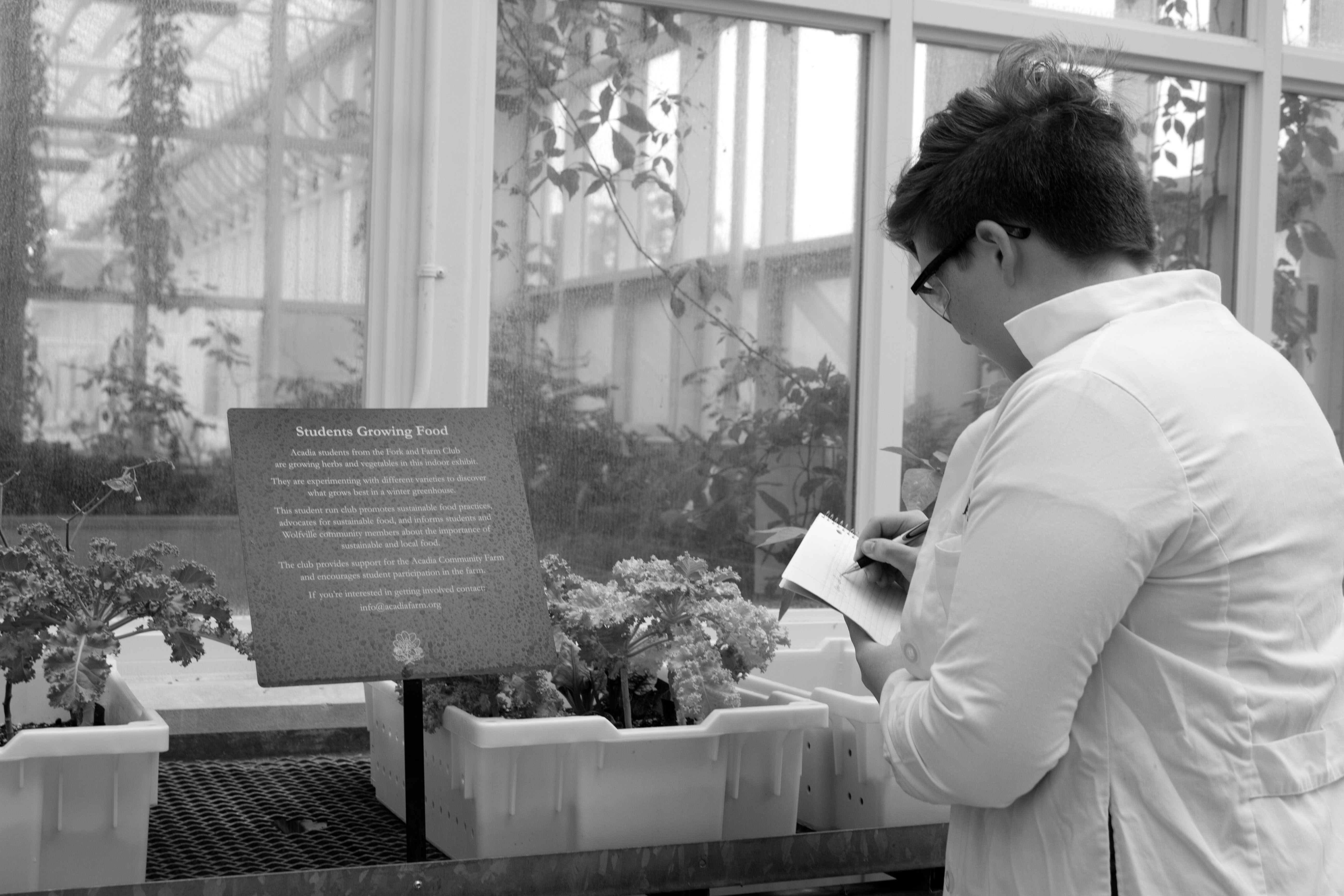Dr. Rick Mehta is well-known on the Acadia campus for teaching Acadia’s biggest course, Introductory Psychology, but also for being a friendly and active member of the Acadia community. He can often be found going on a run around campus or singing in the Acadia University Chorus. In light of Dr. Mehta’s upcoming talk on “Free Speech in Universities: Threats and Opportunities”, I sat down with him to get some insight into his research interests, teaching style and thoughts on issues university students are facing today.
Dr. Mehta began his post-secondary education with his B.Sc. at the University of Toronto in Scarborough from 1989 to 1993. He debated doing a biology and psychology double major but settled instead on a neuroscience degree which he felt was the best of both worlds. From 1994 to 1996, he did his M.Sc. in psychopharmacology at McGill University to study the effects of drugs on rats’ brains. This was challenging due to a very uncomfortable allergy to rats and so he then switched to studying how people learn about correlations between events (and their role in decision making) as his Ph.D. project at McGill. After completing a three year Post-Doctoral Fellowship at the University of Winnipeg, Dr. Mehta came to Acadia in 2003.
When asked about what he finds special about Acadia, he remarked at how, even being in a class in Acadia’s biggest classroom, Huggins 10, one can still feel a sense of community with those around you. This sense of community and belonging in a group appeals to him and, along with the pure joy of creating music, is the reason why he takes part in the Acadia chorus. He enjoys this opportunity to be equals with his students and to interact with them as peers rather than as a professor standing in front of them in a classroom.
Introductory Psychology is a course that many students find themselves taking at one point throughout their Acadia career, and Dr. Mehta’s teaching of it has helped to make it quite popular. He always arrives a few minutes early to chat with students and plays a song at the beginning of every class. To him, the necessary formula of a good lecture incorporates content that is both accessible and structured above all else but woven as much as possible with breaks for humour. Indeed, when I asked him if there was someone he’d encountered throughout his career who’d inspired him to teach in the unique style he’s adopted, his answer was to show me his forearms. Tattooed on his arms, are the faces of Rush band members. He explained to me that he tries to integrate what Rush does in their music and concerts into his teaching. The band member Neil Peart is the serious one in the group who writes the lyrics, while Geddy Lee adds structure and Alex Lifeson infuses humour and improvisation into Rush’s songs and concerts. To Dr. Mehta, these are the three most important elements he wants to incorporate into his teaching. Like Rush, he has something serious to share but wants to deliver it with as much joy and accessibility as possible.
Dr. Mehta’s research interests lie in the field of decision making. Recently, he’s been looking into the role of various predictors that play a role in decision making tasks. One predictor that he described was the Cognitive Reflection Test. This is a test where a question may be worded such that there seems to be an intuitive answer but it’s actually incorrect. An example question looks like this: “A bat and a ball cost $1.10 in total. The bat costs a $1.00 more than the ball. How much does the ball cost?” Many people would say ¢10 whereas if you really think about it, the answer is ¢5. Recent research suggests that low scores on this task are associated with real-life outcomes such as increased credit card debt and failing to secure our computers (e.g., not being careful about our privacy settings when using social media).
Other predictors he has studied include the ways people process information, how much they enjoy being challenged, how much faith they put into intuition and how they reason with numbers in relation to decision making. These types of studies are relevant because there are plenty of everyday examples where quick decision making is necessary but can have consequences on a person’s well-being. For example, nutrition labels are supposed to be easily accessible to the public, and yet his research group has found that complex numerical and reading comprehension skills are actually needed to fully understand them.
I asked him if he had any advice to share with students who may be interested in also pursuing a career in research and his advice was to follow your strengths and to think creatively about your options. While the high level of competition for research jobs in the academic context may make a career in research seem daunting, there are plenty of alternative places to look to gain interesting experience. For example, research jobs in the private industry, government or military may have less competition and be just as interesting and rewarding.
Since Dr. Mehta’s upcoming talk on free speech has been a highly controversial topic in universities in Canada and the United States, I asked him for a preview of his stance and objectives in giving it. I learned that his goal is to address a persisting issue and to provide an outlet for a discussion that avoids setting off a rally or further polarization of viewpoints. He plans to provide evidence of a growing lack of civil discourse in universities and so a polarization of viewpoints leading to a new kind of discrimination. As he put it, “throughout human history, people have had a tendency to separate ourselves into us versus them groups, and the growing trend now is for people to discriminate against each other based on their views or ideas.”
His hope in giving this talk is to reach out to people who disagree with him so as to be able to follow up his talk later with a well-rounded panel discussion that has the potential to start a conversation within the university community. He plans to bring evidence from studies and incidents on Canadian and American University campuses to discuss how to approach this challenging subject. He feels that suppressing hate speech will not be the most effective way to eliminate hate and will bring ideas for how else to address this problem. He plans to discuss the shift in political ideologies on campuses across Canada that have inadvertently shifted to become disconnected with the rest of society. His concern with this being, that if viewpoints go very far in one direction, it can lead to a polarization that creates a rebellion for polarization in the opposite direction. This issue and debate exists in university campuses across North America, and if you can’t talk about it in university, then where can you talk about it?
To hear more about Dr. Mehta’s impressions of the factors affecting free speech in universities, join him for his talk “Free Speech in Universities: Threats and Opportunities” from 7 to 8:30pm in BAC 132 on September 27th, 2017.




